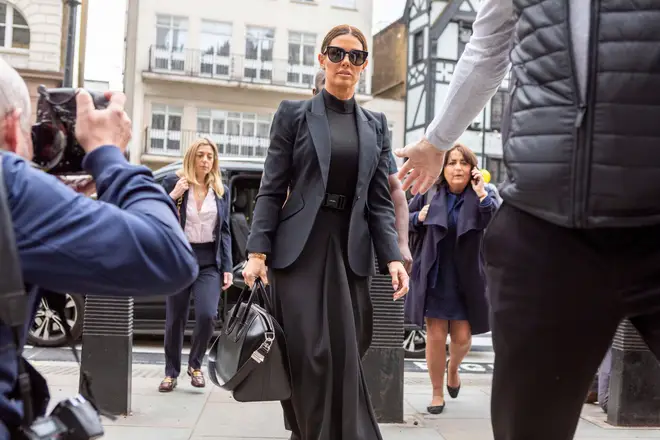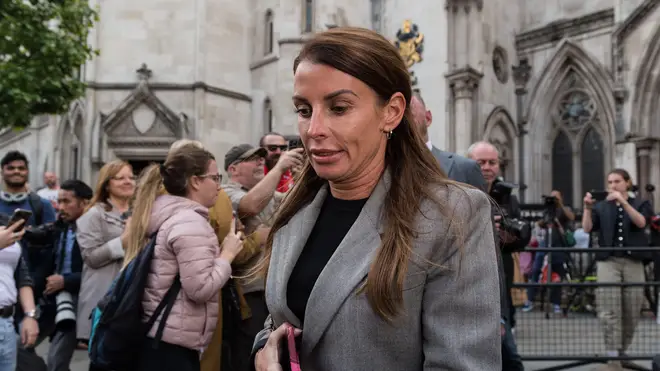Rebekah Vardy loses 'Wagatha Christie' case against Coleen Rooney
29 July 2022, 12:28 | Updated: 29 July 2022, 12:58

Footage shows outside of court as Rebekah Vardy loses libel case against Coleen Rooney
Wagatha Christie latest: Rebekah Vardy has lost her libel battle against Coleen Rooney.
Rebekah Vardy has lost the ‘Wagatha Christie’ libel case she brought against Coleen Rooney.
In a viral social media post back in October 2019, Coleen, 36, revealed she’d carried out a ‘sting operation’ accusing Rebekah, 40, of leaking ‘false stories’ about her life to The Sun.
She claimed Rebekah’s account was the source behind three fake stories she had posted on her private Instagram account.
Taking to her social media account at the time, she said: “It Was……… Rebekah Vardy’s account.”
- Woman says she was fired from new job after she shared her salary on TikTok
- UK’s ‘cheapest petrol station’ is selling fuel 30p less than average price
- Helen Skelton reveals she lost £70k life savings in banking scam

After days of cross-examination, on Friday Mrs Justice Steyn ruled that the libel claim had failed.
During the seven-day trial, the court heard personal WhatsApp messages sent by Rebekah including her alleged attempts to blame the leaks on her former agent Caroline Watt.
Evidence also included details of her selling kiss-and-tell stories to tabloids about the singer Peter Andre, and allegations she had leaked stories of her husband Jamie Vardy’s relationship with his football teammates.
Rebekah’s team told the court her life had been ‘made hell’ by Coleen’s public claims.
Her barrister Hugh Tomlinson QC, said Coleen’s team had ‘failed to produce any evidence’ that she had ‘regularly and frequently abused her status as a trusted follower’.

He added: “Mrs Vardy’s case is and always has been that she did not leak the information nor did she authorise anyone else to leak.“
“She does not know to this day what happened. She does not know where this information came from.”
Mrs Justice Steyn said it was 'likely' Rebekah’s agent at the time 'undertook the direct act' of passing the information to The Sun.
She said: “Nonetheless, the evidence … clearly shows, in my view, that Mrs Vardy knew of and condoned this behaviour, actively engaging in it by directing Ms Watt to the private Instagram account, sending her screenshots of Mrs Rooney’s posts, drawing attention to items of potential interest to the press, and answering additional queries raised by the press via Ms Watt.”
The judge added: “In my judgment, the conclusions that I have reached as to the extent to which the claimant engaged in disclosing to The Sun information to which she only had access as a permitted follower of an Instagram account which she knew, and Mrs Rooney repeatedly asserted, was private, suffice to show the single meaning is substantially true.”






















